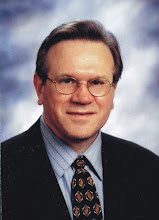That is one way of stating the question I was asked to address in a session on "Surviving and thriving as a freelancer." Plucked into the last spot of the day on Saturday afternoon at the annual meeting of the Association of Health Care Journalists in Chicago, the 75-minute session featured four freelance health care journalists, a senior freelancer, and two editors of magazines.
My role was to bring the perspective of the editor of Pharmacy Today, a magazine published monthly by the American Pharmacists Association. Our association is just one of thousands in the nation's capital, and that's just the start of the association world. There are so many associations across the country (and around the world) that there is even an association for associations (the American Society of Association Executives). And there are so many health care groups that the ASAE has a special committee that tries to meet their special needs.
I made five main points in my 6-minute presentation.
The secret to happiness is finding something you like to do and getting someone to pay you for it. If there is a cause or medical content area a journalist particularly likes, then linking with one or more associations with similar views can be symbiotic.
Within health care, trade and professional associations are generally established to protect the turf of some industry or group of workers. Their editorial products may not be viewed as, and in fact may not be, independent journalism. This limitation or criticism might be more accurate for trade groups, which are more directly concerned with the marketplace, than for professional health care associations, which typically have as their ultimate mission the betterment of patients. Also, in many cases, the limitations on journalists are not much different than in local situations where large employers or advertisers are dealt with carefully.
Associations are not as apt to go for pieces that are critical of their industry or profession as for general information or feel-good articles. But that doesn't mean that anything negative is off base. For some time, I've wanted to cover some of the pharmacists who have ended up in jail. Some of them did really bad things to get there. One told me, "It's easy to get in here, but it's hard to get out." But one Ohio pharmacist was caught in medical-error situation that unfortunately was prosecuted criminally. His is a story that pharmacists need to learn about. Negative or sensitive stories might not be the greatest first pitches to an association editor, but neither does the writer have to feel like they left journalistic principles at the door.
Pitching to associations is not that different from pitching to any publication. The freelancer has to do some homework. Access the association's publications in print and online. Study the content. See how many articles appear to be written by freelancers. Gauge whether the freelancers are people in the field--that is, people trained as the professionals represented by the association--and how many are medical writers or health care journalists.
If the freelancer feels like there is a match on the content and a fit on the type of writing involved, contact the editor with several compatible topics, issues, or angles you'd like to cover. It's probably best to start with e-mail these days, but follow up quickly with a phone call if no response is received. Work with the editor in fleshing out the story, loop back with questions during the interviewing and writing process, and deliver the article on time.
With preparatory spadework and a little luck, the freelancer could soon be one of the go-to writers for an association publishing operation. After that, the possibilities are endless. Many associations publish longer continuing-education pieces, need help with promotions for seminars and conventions, have active social media operations, and publish books and electronic products. A strong health care journalist can be build a lasting relationship with any number of associations--and get paid to do it!


I like your way of telling stories in Chicago. Reading them makes me feel like I was there! I will follow your blog for this trip!
ReplyDeleteLots of great advice packed into here. You've been holding out on us all semester. :) Thanks for the tips! Glad you had fun in the Windy City!
ReplyDeleteMichael helped put us on the map with his presentation at AHCJ. He was the first HMJ at UGA to present at this national meeting, but he won't be the last: plans already in the works for next year.
ReplyDelete